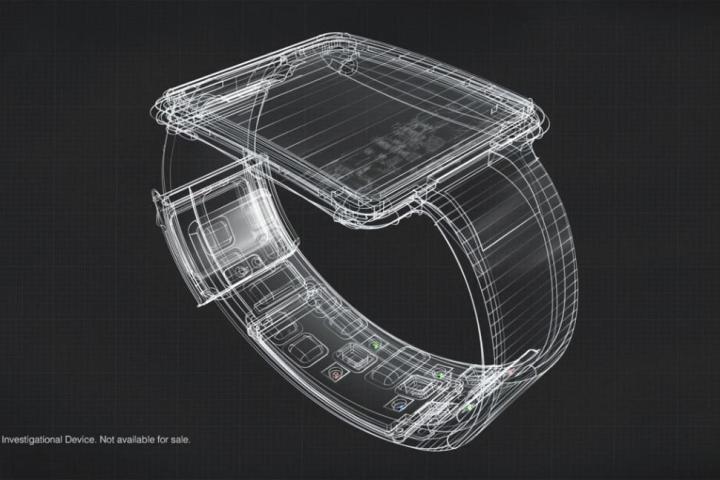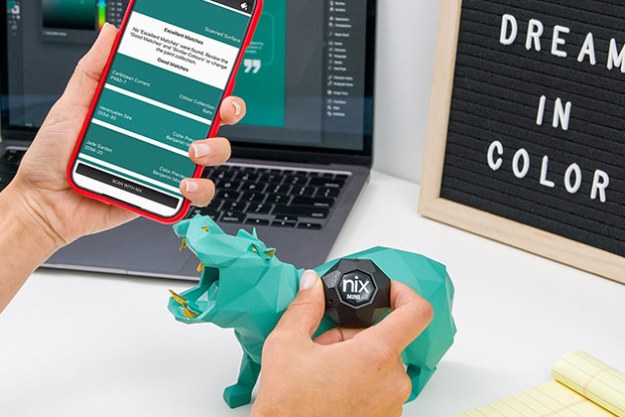
Samsung beat Apple to the punch on Wednesday when it announced a new mobile medical tech platform called Simband. It’s a prototype smartwatch with a heavy emphasis on health and fitness, and it’s chock full of different sensors. The watch shares and collects health data in real time, and uploads it to Samsung’s dedicated cloud service. From there, your heart rate, blood pressure, breathing rate, and other health indicators can be analyzed by healthcare professionals. The idea is to provide personalized feedback and suggestions to help improve your wellbeing, or even a call to schedule an appointment if a problem is found.
Samsung wants to lead the charge into the future of medical tech, and is focusing on wearables and sensor technology. The eventual goal is to incorporate improved sensors into smartphones, smartwatches, and other mobile devices, so that data related to our health is being collected at all times. Eventually, we’ll get a detailed picture of how well we’re taking care of ourselves and what we need to do to live a long, healthy life. Samsung says it wants all these devices to be the “voice of the body.”
Simband’s all about the sensors, baby
Simband is essentially a smartwatch that can measure heart rate, respiratory rate, blood pressure, and other key vital signs. The wristband itself is loaded with different kinds of sensors, and since it is modular, you can add new sensors when they become available. Simband is powered by an ARM Cortex-A7 dual-core processor and supports Bluetooth as well as Wi-Fi, just like other fitness wearables from Samsung. It also features a shuttle-style battery that connects to the wristband while you sleep, so you never have to take it off to charge it up. The main difference between the new Simband and the Gear Fit and Gear 2, is it is not intended for regular consumers.
Simband is a reference device for researchers, developers, healthcare companies, and anyone looking to invest in the future of medical technology. Samsung hopes the band will spur important innovations in fitness wearables and improve the way we collect and analyze user data. Right now, most wearables track and store that data, but stop short of analyzing it and putting it to practical use. Samsung aims to fix that problem with the user feedback provided by Simband in future trials.
All your data in the cloud: SAMI
Samsung Architecture Multimodal Interaction or SAMI, is the open, cloud-based data platform used by the Simband. All the data collected from its sensors, and other devices in the future, will be securely uploaded to the server for analysis and sharing. Samsung says part of SAMI’s job is to tap into the data collected by all different types of fitness apps and devices, allowing medical professionals to gain a better understanding of how best to use it in the real world. SAMI will protect the data by keeping everything anonymous, and out of the hands of third-party developers or manufacturers. In this way, Samsung aims to put owner’s minds at rest, while simultaneously improving the current state of healthcare.
Samsung’s vision for medical tech
Samsung envisions a future where doctors know what’s wrong with you before you do. Currently, preventative medicine falls far behind reactionary medicine, which in turn contributes to rising healthcare and prescription drug costs. Theoretically, wearables health trackers can change that. If everyone carried one every day, silently keeping track of all their body and its vital signs, chances are patterns will emerge. Doctors could use this data to predict when a medical problem, large or small, may arise.
For example, examining your heart rate, eating, and exercise habits, as well as your body fat percentage, could help doctors prevent heart attacks, strokes, and other serious conditions before it’s too late. Based on this personal information, doctors could prescribe a healthcare regimen designed specifically for you. They will also be able to tell if you are following their advice or not because they will receive real time data from the device. Sorry, no more fibbing on your chart or fitness log!
The Galaxy S5 and the Gear Fit showed Samsung’s early ambitions in health tracking, but this is a significant step forward. Obviously, it’s only the beginning and undoubtedly, as the technology advances, the level of sophisticated medical care provided by wearable technology will also improve.
Editors' Recommendations
- Does the Samsung Galaxy S23 come with a charger? Know this before you buy
- If you owned the Samsung Galaxy S4, you’re entitled to some cold, hard cash


